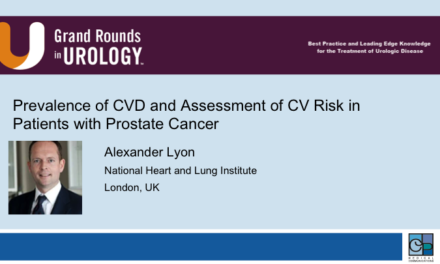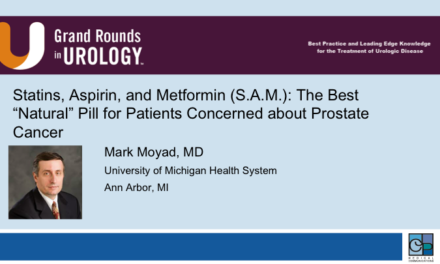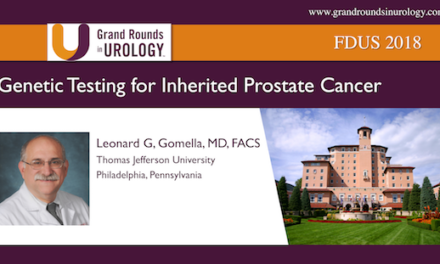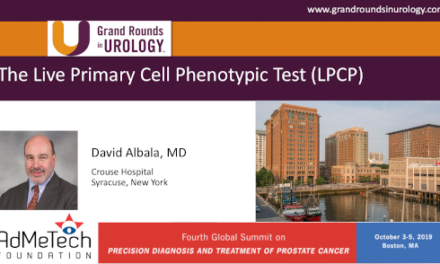Ros Eeles, PhD, FRCP, FRCR, presented “Update on IMPACT – Targeted Prostate Cancer Screening in BRCA1 and BRCA2 Mutation Carriers and Men with Lynch Syndrome” during the 7th Global Summit on Precision Diagnosis and Treatment of Prostate Cancer on September 21, 2023.
How to cite: Eeles, Rosalind. “Update on IMPACT – Targeted Prostate Cancer Screening in BRCA1 and BRCA2 Mutation Carriers and Men with Lynch Syndrome.” September 21, 2023. Accessed Apr 2024. https://grandroundsinurology.com/update-on-impact-targeted-prostate-cancer-screening-in-brca1-and-brca2-mutation-carriers-and-men-with-lynch-syndrome/
Update on IMPACT – Targeted Prostate Cancer Screening in BRCA1 and BRCA2 Mutation Carriers and Men with Lynch Syndrome – Summary
Ros Eeles, PhD, FRCP, FRCR, describes interim results from the IMPACT study, showing a recommendation for yearly PSA screening in BRCA2 mutation carriers. Those with gene mutations are more likely to have aggressive disease, almost twice as much as those without. In BRCA2 carriers, positive predictive value of biopsy and PSA was significantly higher, with a younger onset of mutations and higher Gleason scores.
Professor Eeles turns to a small recruitment study of the Lynch Cohort, which showed 85% of MSH2 carriers and 75% of MSH6 carriers had clinically significant disease, while MSH2 and MSH6 non-carriers had no clinically significant disease. The participants had a mean age 52.8 and 81% of participants do not have a strong family history of prostate cancer. As it is still unknown if very early disease could be managed by active surveillance, Professor Eeles suggests data is still needed to support active surveillance and MRI for early-stage disease in these carriers.
The Global Summit on Precision Diagnosis and Treatment of Prostate Cancer is a unique multi-disciplinary forum organized to inform the key health care stakeholders about the emerging advances in clinical case and research and create a consensus-based vision for the future of precision care and educational and research strategy for its realization. The mission of the Summit is to fill the currently existing gap between the key experts of in vivo imaging, the world authorities in the in vitro fluid- and tissue-based molecular diagnostics, including genomics, and thought leaders in the development of novel observation strategies (e.g., active surveillance, or AS) and therapeutic interventions.




